GOOD Morning Britain’s Susanna Reid revealed she’s delayed her coronavirus vaccine over concerns it will make her too tired to work.
The telly star, 50, made the decision after speaking to people who had experienced fatigue following their vaccinations.

Read our coronavirus live blog for the latest news & updates…
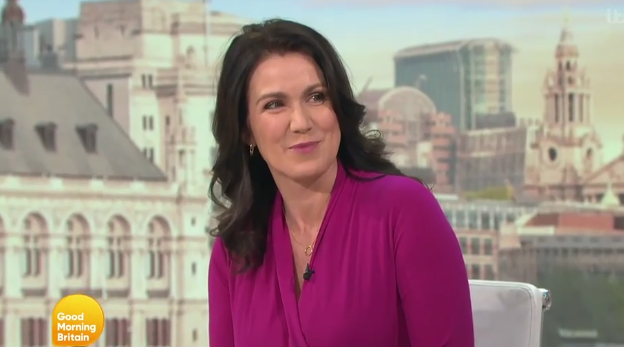
She explained: “I was due to have my vaccine this week. A couple of people who have had it said they got quite tired after it and suggested waking up at four in the morning, the morning after you’ve had the vaccine might not be the most sensible option, so I have just delayed it to a day where I’m not going to be getting up at four in the morning the next day.”
Dr Hilary Jones reassured her that feeling tired after receiving a vaccine was a good sign that the body was producing a response to the virus.
He said: “When people feel tired after the vaccine it’s actually a positive thing. It means your immune system, your body is working hard to create antibodies.
“I felt tired after mine for a couple of hours and then it had gone.”
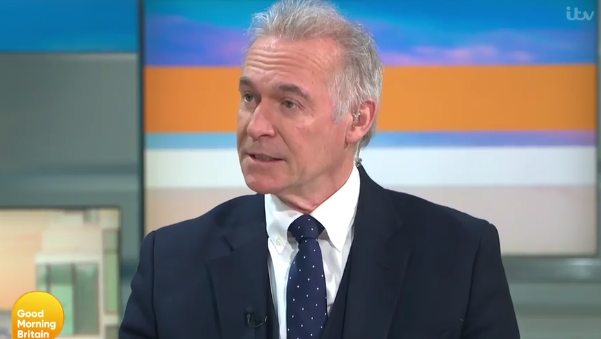
On Monday Susanna announced she was due to have her first vaccine shot and said she was unfazed by concerns in Europe that the Oxford-AstraZeneca jab could lead to blood clots.
She said: “It’s a big week for me personally. I wouldn’t normally divulge personal medical information and this is a one off, but I have my vaccine booked this week, and I will be going ahead with it because the overwhelming evidence is it is going to save lives.”
Dr Hilary also moved to reassure viewers that the vaccine was safe.
Addressing concerns after Norway, Denmark, and Ireland suspended the AstraZeneca jabs to investigate links to blood clots, he said: “It’s almost certainly a coincidence.
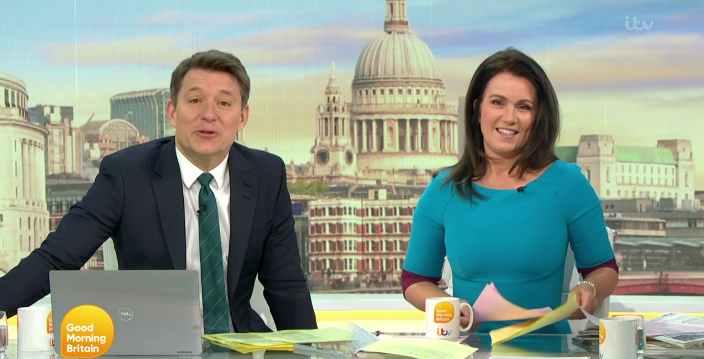
“Whenever we have a medicine, or a vaccine, or a homeopathic remedy there is a system in place whereby any possible side effects can be reported and investigated.
“And it’s absolutely right and reassuring we’ve got an investigation in place to look at the level of blood clots in Norway and Ireland, the UK and around the world.
“Blood clots are very common anyway. We see thousand of heart attacks and strokes every year because of blood clots. Actually all the data we have so far is the level of blood clots is lower than it would be before vaccinations, which is reassuring. At the moment there’s no evidence of any causal links between vaccines and blood clots.”
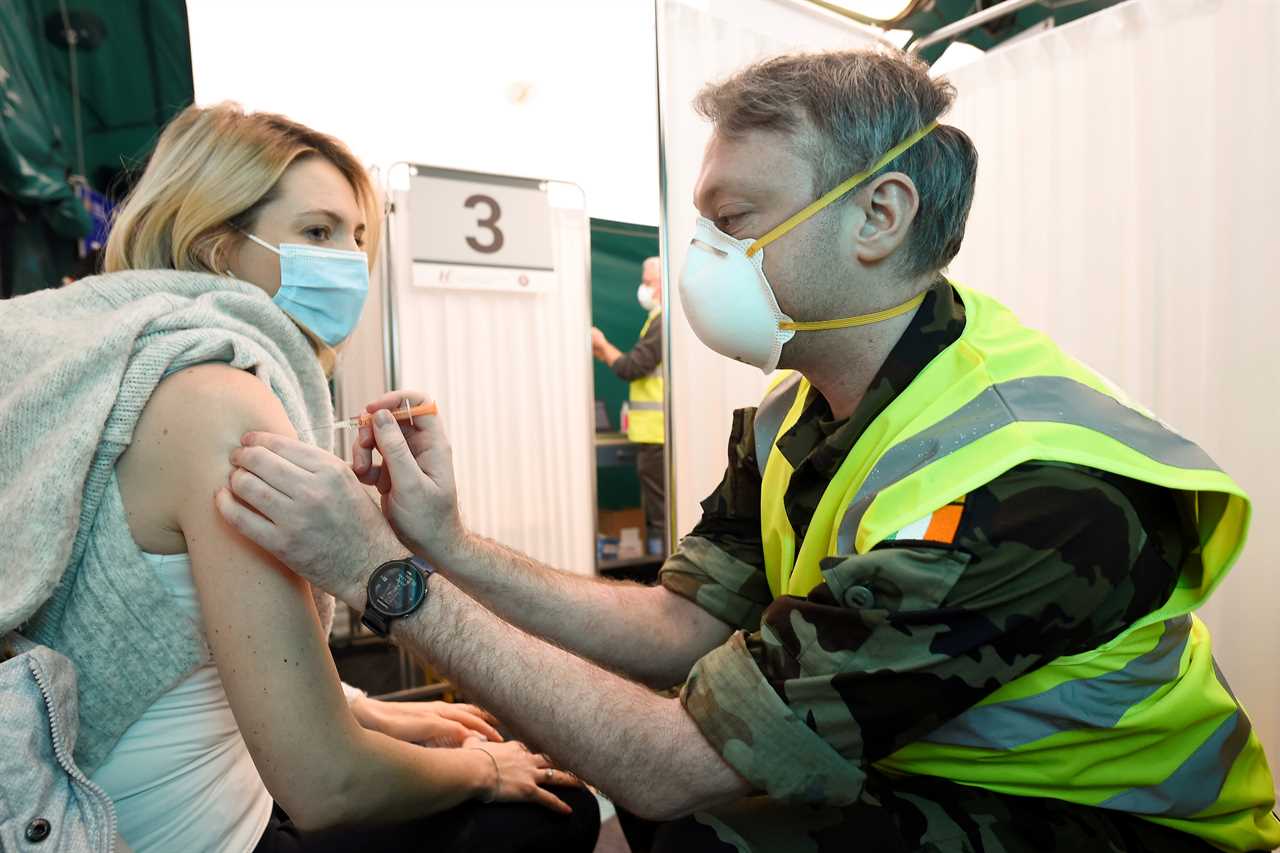
Ireland had been pushing the pharmaceutical firm to speed up its deliveries of the jabs as it faced a second wave.
But deputy chief medical officer Dr Ronan Glynn said Ireland will pause use of the AZ jab as a precaution.
Dr Glynn said: “It has not been concluded that there is any link between the Covid-19 vaccine AstraZeneca and these cases.
“However, acting on the precautionary principle, and pending receipt of further information, the National Immunisation Advisory Committee has recommended the temporary deferral of the Covid-19 vaccine AstraZeneca vaccination programme in Ireland.”
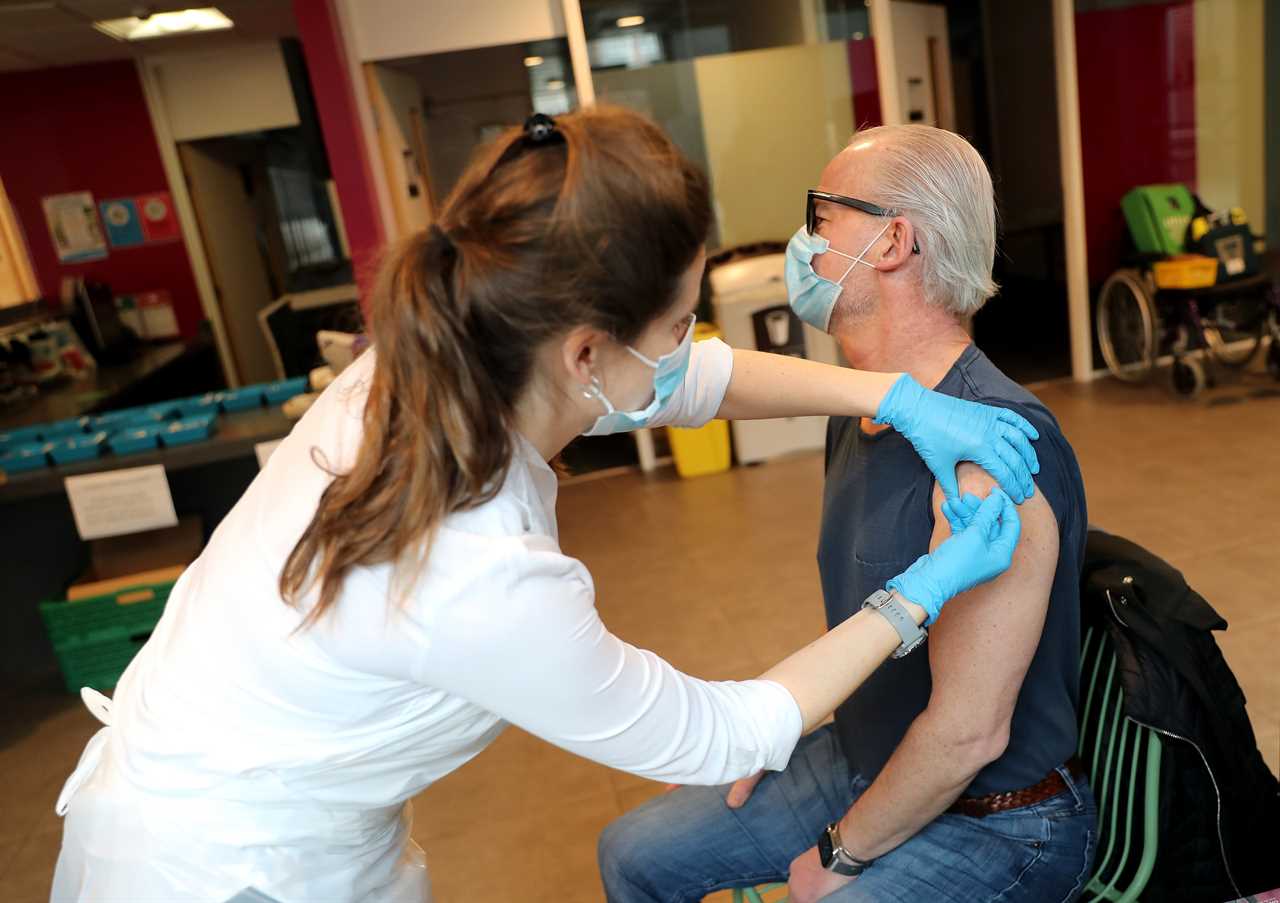
But UK regulators have reassured the jab is safe and say there is no evidence it was the cause of fatal blood clots.
There have been a small number of reports of people experiencing blood clots in the days and weeks after their vaccination, leading to a handful of deaths.
More than 11 million doses of the Oxford jab have been administered in the UK alone – and many million more worldwide, including 110,00 in Ireland.
There are fewer than 50 cases of reported blood clotting – and there has been no causal link confirmed.
AZ, EU regulators and the World Health Organisation have all rebuffed the blood clot fears.
Irish health minister Stephen Donnelly said the measure was a “precautionary step” and said it was a “temporary suspension” of the AZ vaccine.






